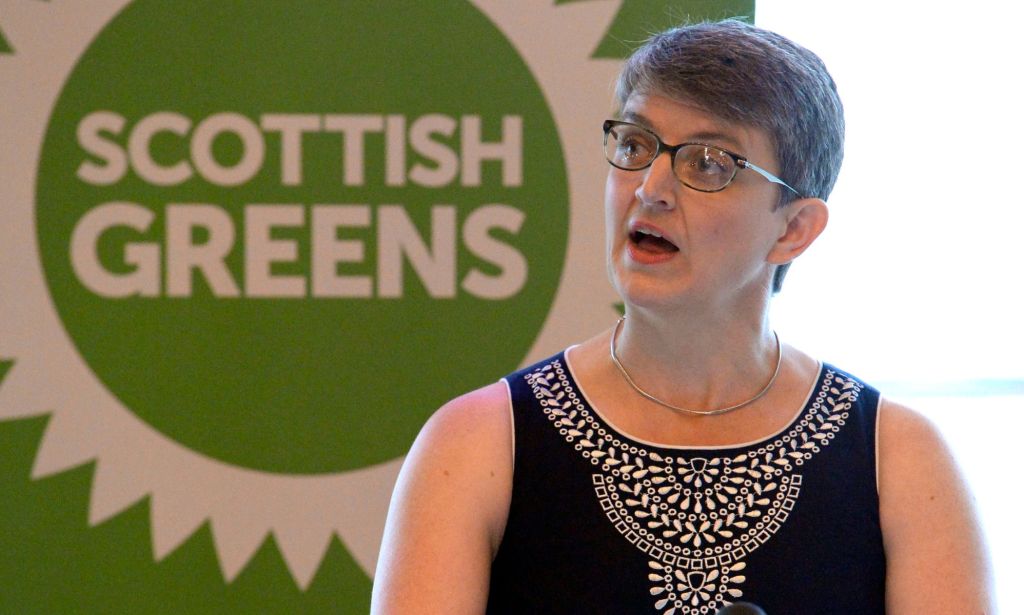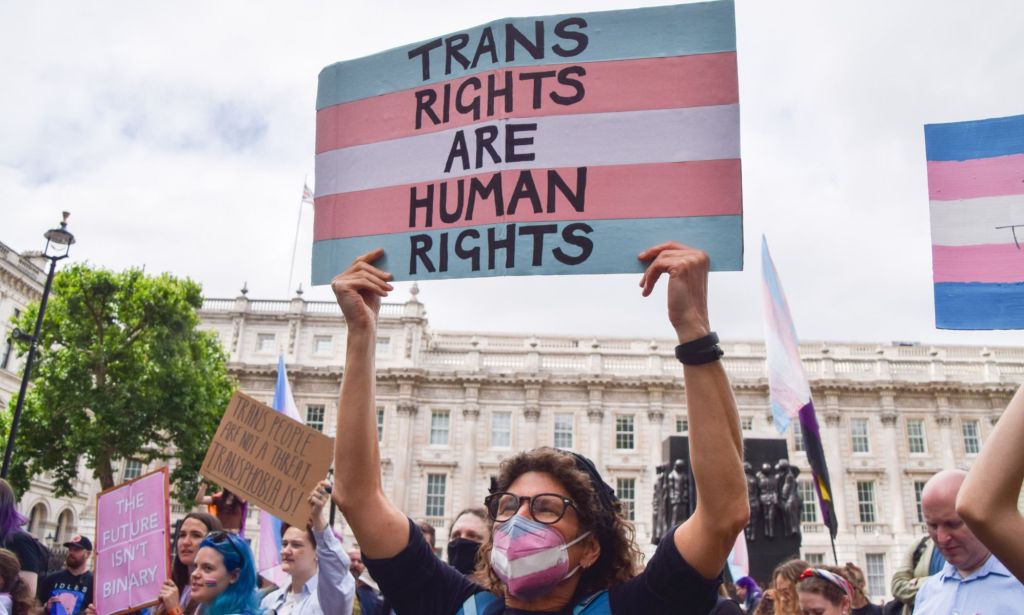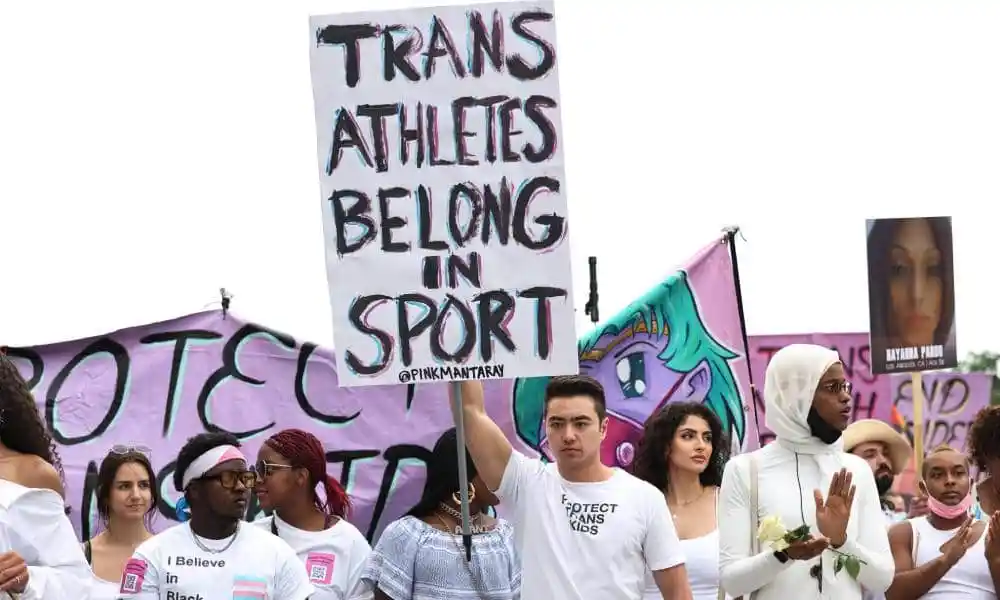Where does the Green Party stand on trans rights?

Where does the Green Party stand on trans rights? (Jack Taylor/Andy Soloman/UCG/Universal Images Group/Getty/Canva)
Ahead of the UK general election 4 July, voters may be wondering where the Green Party stands on trans rights.
Prime minister Rishi Sunak surprised most political pundits on Wednesday (22 May) when he called a snap general election for 4 July – just six weeks from now.
The election could spell disaster for the Tories, who have been in power since 2010, following their abysmal results in the local elections and Labour’s by-election wins in recent months.
LGBTQ+ issues – mainly transgender rights – look set to be one of the key battlegrounds in the upcoming campaigns, with former Tory Lee Anderson previously stating that for the Conservatives to win a majority, they must fight a “mix of culture wars and trans debate”.
PinkNews has previously asked the main political parties about their commitments to trans rights, with mixed results.
As UK voters prepare to cast their ballots on 4 July, here is where the Green Party stands.
What have the Greens said about the trans community?
According to policy documents, the Green Party “recognise[s] there are many gender identities that are within, and outside of, the traditional gender binary of man and woman” and that “trans men are men, trans women are women, and non-binary identities exist and are valid”.
The introduction to the party’s responsibilities and rights section of its policy statement continues: “We shall respect transgender and non-binary people’s identities as real. The Green Party shall include, and push for further acceptance of, transgender and non-binary people within all areas of society.”
Outside specific policy, Scottish Greens MSP Maggie Chapman has previously been outspoken about trans topics and called on the Scottish government to do more to support trans youth.
“Some of those 300,000 children who currently benefit from Scottish child payment will be transgender or non-binary,” Chapman told fellow MSPs. “Many will be gay, lesbian or bisexual. We want them all to grow up in safety with dignity and equality, with their health needs met in the right place at the right time.
“I and the Scottish Greens will never renege on our solidarity with the LGBTQIA+ [community].”

However, the Green Party has also faced controversy with regards to trans rights.
In October 2022, the Scottish Greens cut ties with Green Party of England and Wales over growing concerns about transphobia within the party, saying office-bearers had engaged in “transphobic rhetoric and conduct”.
A year later, the co-chairperson of Green Party Women, Chesca Walton, announced in the annual general meeting report that she would not be standing for committee positions in 2024 because of what she called vile and inappropriate behaviour.
“Having witnessed this group from the inside, I am clear that it is not a safe and welcoming space for all Green Party members, especially those who are trans or non-binary,” she claimed.
“Therefore, I recommend that Green Party Women be disaffiliated from the Green Party.”
Legal gender recognition
Green Party policy states people’s gender should be legally recognised and they should be “empowered to update their birth certificate and any other official documents, without medical or state encumbrance”.
The party vows, if it wins power, to review the 2004 Gender Recognition Act, the 2010 Equalities Act and the 2013 Marriage (Same Sex Couples) Act because they “contain significant flaws that discriminate against some trans people and thus are not fit for purpose”.

Alongside this, the Greens have promised to remove any legal barriers trans parents face when having their gender properly recognised on their child’s birth certificate.
“We would ensure parents could choose the right option for them (mother/father/parent) on a birth certificate,” the policy reads.
The party also outlines its support for the removal of “spousal veto”, where trans individuals are required to get written permission from their partner for their marriage to continue if they obtain a gender recognition certificate.
Access to gender-affirming care
Gender-affirming care has become a hot potato in politics in recent years both in the UK and US, with a number of anti-trans politicians seeking to block transgender people’s access to it.
In March, NHS England announced transgender youth will no longer be prescribed puberty blockers, a move which the charity Mermaids called a “further restriction of support offered to trans children and young people through the NHS, which is failing trans youth”.
Greens’ policies outline that the process of transitioning on the NHS should “empower rather than demean” and call on the NHS to “better recognise the increasing need for gender-identity clinics and increase service provision, across the country”.
The documents go on to say: “The NHS should remove barriers to accessing services for trans people, with thorough review of access to services for children and young people and for those who have self-prescribed or self-funded gender treatment in the UK or abroad.”
Trans inclusion in sport
Trans people taking part in sport has also become a key issue in the battleground for rights.
In recent months, a number of sporting bodies have taken steps to exclude trans athletes from competing in the category which matches their gender. From swimming to athletics and now sailing to cycling, these decisions vary from outright bans to the creation of “open” categories for trans and non-binary.
In the US, where the presidential election will take place in November, a lot of the talk about trans people in sport focuses on young athletes, with a number of states outright barring trans youngsters from teams which match their gender.

“In sport, trans people are often ‘outed’, subjected to humiliating treatment, forced to provide unnecessary medical details and proofs of ‘genital surgeries’ that have no relevance to the stated aim of ‘ensuring all of the same gender compete on a level playing field’, the Greens believe.
“This is due to the extensive amount of exemptions contained within the existing Gender Recognition Act, not least of which is that a trans person’s birth certificate does not have the same legal standing as a cis person’s,” policy documents go on to say.
How did this story make you feel?

